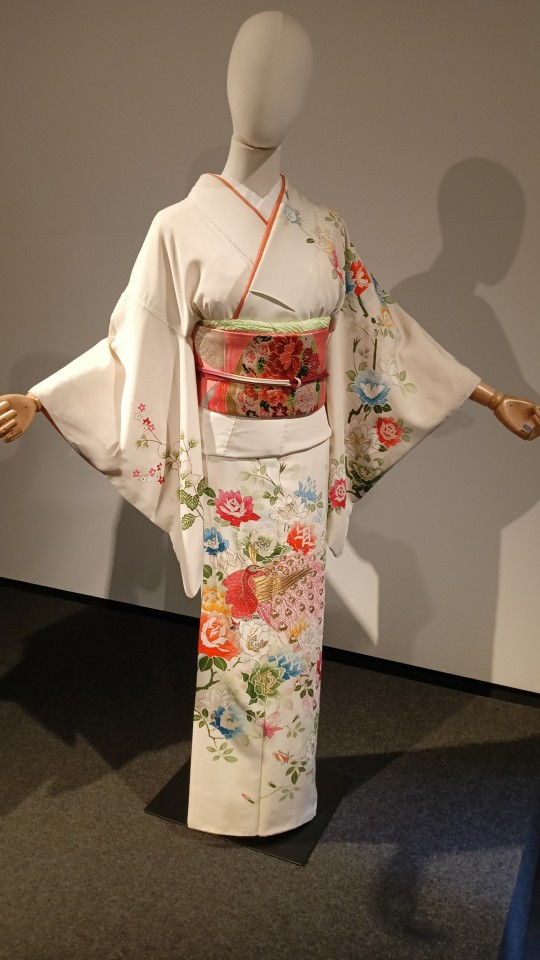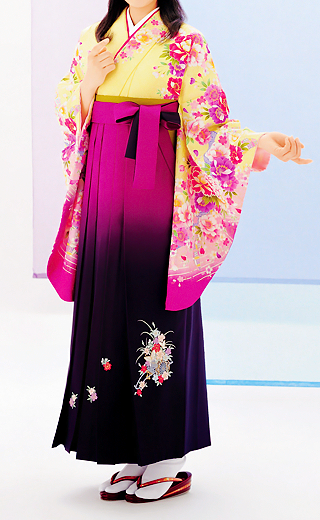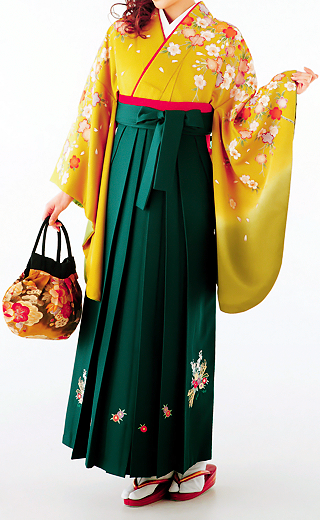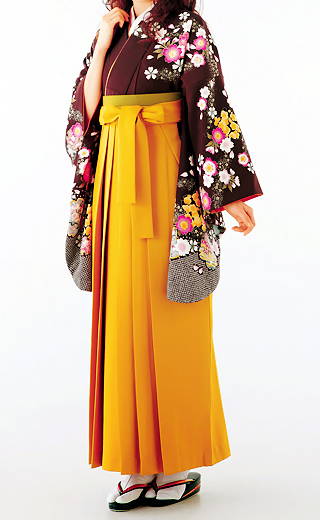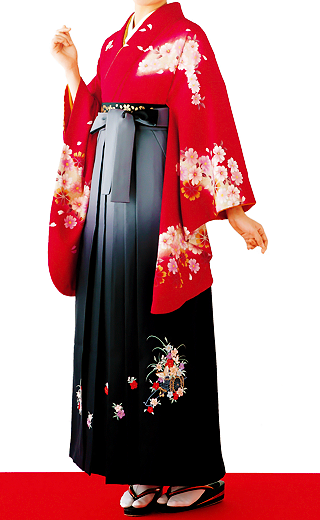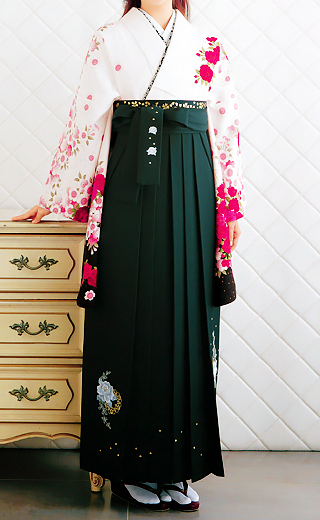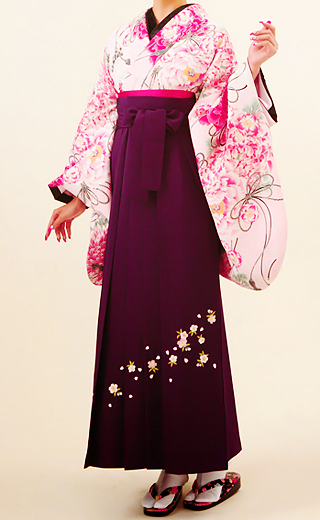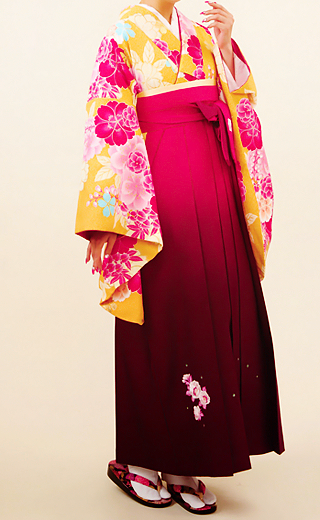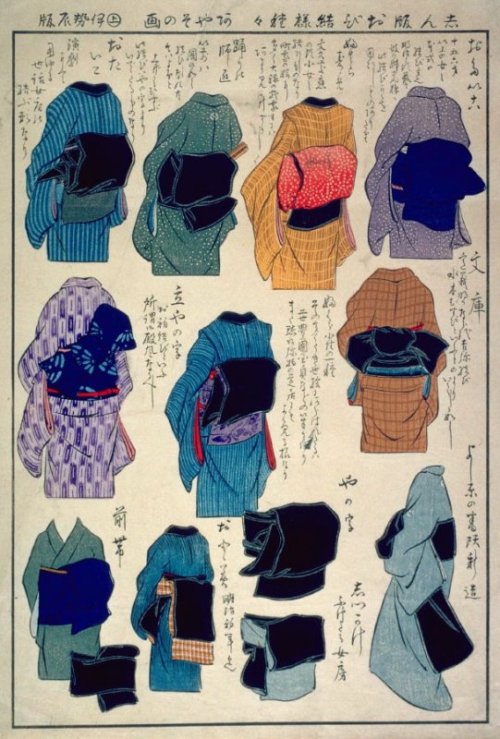Stay connected to your favorite content
Kimono - Blog Posts
This is useful!
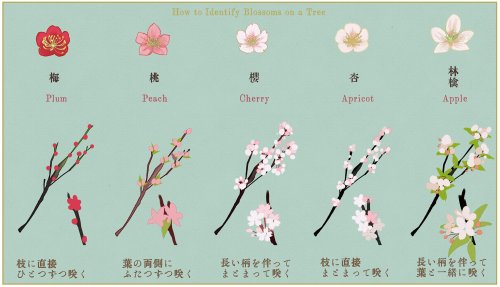
Handy reference chart showing the difference between blossoms (ume/plum, momo/peach, sakura/cherry, anzu/apricot, ringo/apple). Note the colors, how the buds sit on branches, and of course petals shapes.
Apricot and apple are veeeery rare as kimono/obi patterns. Morover, what I usually simply call “plum” (ume) is in exactly the Prunus mume (or Japanese apricot/plum) and come with red/white/pinkish flowers.

You were the brightest shade
Of sun I had ever seen
Your skin was gilded with
The gold of the richest kings
And like the dawn
You woke the world inside of me
You were the brightest shade
Of sun when I saw you
And you will surely be the death of me
But how could I have known?
- The Oh Hellos

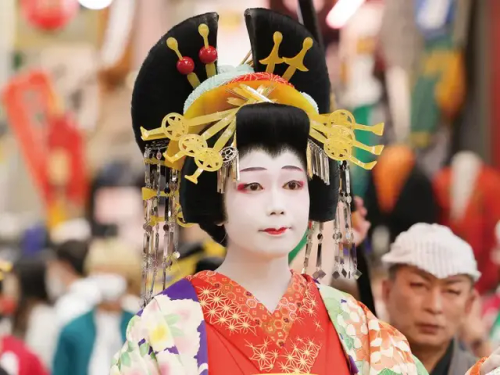





Capítulo 1: Diferencias entre Geisha y una Oiran Introducción. Sean bienvenidos japonistasarqueologicos una nueva entrega resumen, en esta ocasión os contaré que es una Oiran (おいらん) dicho esto comencemos. - Las Oiran son prostitutas que surgieron en el siglo XVII en el período Edo. No debemos confundirlas con las Geishas(げいしゃ). - En la segunda imagen os enseño una Oiran (おいらん) del anime Kimetsu no Yaiba(los guardianes de la noche) - Espero que os haya gustado y nos vemos en próximas publicaciones de Historia, arqueología, geografía nipona, entre otros temas, Que pasen una feliz semana. - Chapter 1: Differences between Geisha and an Oiran Introduction. Japonistasarqueologicos are welcome to a new summary installment, this time I will tell you that it is an Oiran (おいらん) having said that, let's start. - The Oiran are prostitutes that emerged in the 17th century in the Edo period. We should not confuse them with Geishas(げいしゃ). - In the second image I show you an Oiran (おいらん) from the anime Kimetsu no Yaiba (the guardians of the night) - I hope you liked it and see you in future publications of History, archaeology, Japanese geography, among other topics, Have a happy week. - 第1章 芸者と花魁の違い紹介。 Japonistasarqueologicos は、新しい総集編へようこそ、今回はおいらん (おいらん) ということで、始めましょう。 - 花魁は、江戸時代の17世紀に登場した売春婦です。 芸者(げいしゃ)と混同してはいけません。 - 2 番目の画像では、アニメ鬼滅の刃 (夜の守護者) の花魁 (おいらん) を示しています。 - あなたがそれを気に入ってくれて、歴史、考古学、日本の地理、その他のトピックの今後の出版物でお会いできることを願っています。
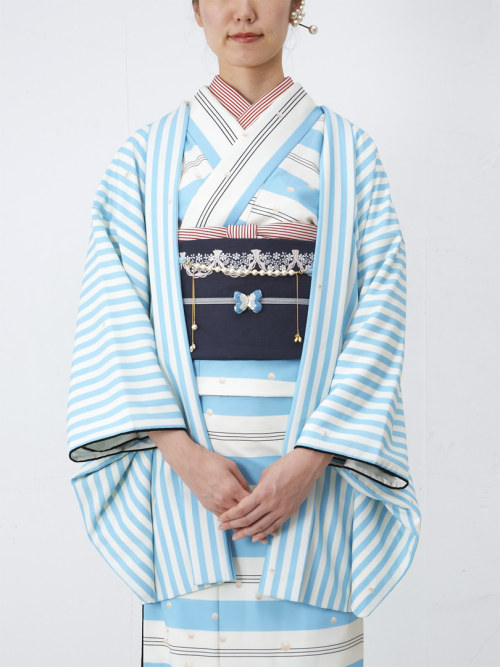
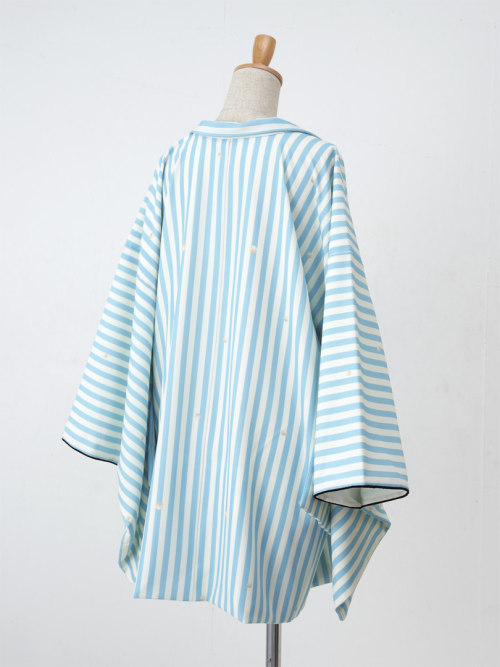

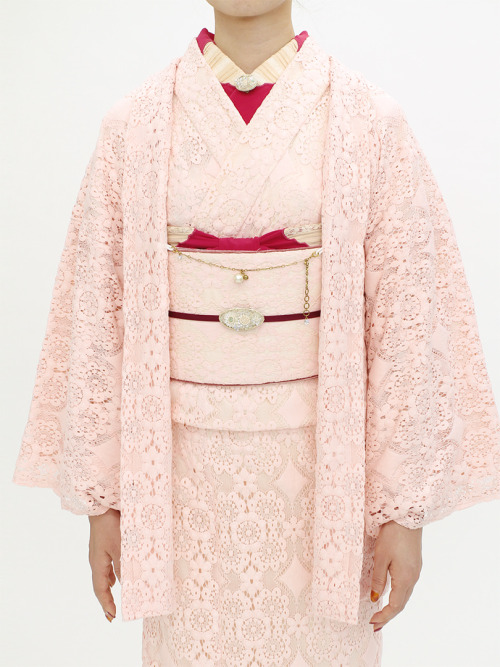
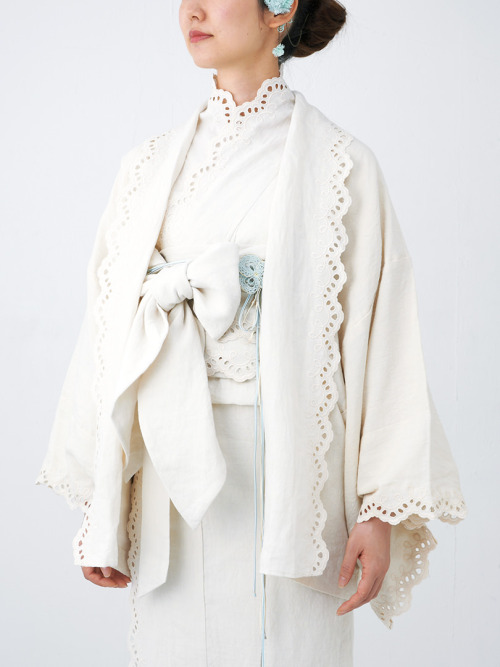



One more post from kimono shop “Double Maison”! These are very modern and cute takes on haori (kimono jackets).

This was day 24, Prompt: cherry.

,Just a drawing of some of my artists friends chilling~💖 -You can support me by commissioning me!🎀💖 -You can also find me on: Twitter~💙 Deviantart~💚 Patreon~🧡 Tumblr~🖤 Take care of yourself and family and stay safe at home bois💖 #aesthetic #anime #commissionopen #lofi #animegirls #animestyle #art #artwork #portrait #drawing #digitalart #digitalportrait #chibi #japon #otakuworld #manga #otaku #kawaiidrawing #kawaii #kawaiigirl #kimono #kimonogirl #artistsupport #commissionsopen #oc #furry #chibiart #chibi #japan #animedrawing #yuri (à Tokyo Sauna) https://www.instagram.com/p/B-jHqDJpNdQ/?igshid=19z7ef61frr8b

Tried out a different program that’ll let me not only easily do isometric designs, but also draw with vectors in it. The program I usually use I could only do squares. Being able to actually color pick a color pallet also is a great plus. Inspired by Japanese ukiyo-e paintings.


Practicing! Also Evelyn/Saoirse visiting her mother and fathers shrine, I hope I did alright with the kimono and the markings from the Kitsune mask. Have a great day!
Absolutely beautiful.

Kimono, Obi: Modorihashi Obidome: Fushoan Obi decoration: Sakura-san Zori: HARU Kimono Komono 📸: Rin-chan ( @c7500750 )

A Happy Birthday card I made for my Japanese friend! :)




Quick Study of the Maiko’s Furisode Kimono+Undergarments!
Just a simple little vocabulary dump! Still learning the details (there are many!) and would love any corrections or elaborations to be made!

Hadajuban: The first layer underneath a Maiko’s kimono. It is said that Geiko and Maiko don’t wear underwear because it throws off the line of the kimono; instead, they wear multi-layer undergarments.
Nagajuban: Another garment with sleeves, made of cotton, that goes over the Hadajuban.
Koshihimo: An under-wrap belt that holds the undergarments together in a foundation shape for the kimono over it.
Korin belt: Ties the juban collars together.
Obi-Ita: Stiff padding that will help to hold the obi belt in place.
Obi-Makura: “Pillow” that ties around from the front. This supports the front of the obi belt. I’ve read it’s something only girls wearing kimono use.
Eri Shin: Long strand of cardboard or plastic that serves as a collar stiffener.
Tabi: White, sometimes buttoned up, socks that separate the big toe from the rest of the four toes. Worn along with a Maiko’s Okobo or Zori.

Furisode Kimono: Formal-looking kimono with a characteristic of long, billowy sleeves with the seam connecting the top sleeve to the hanging sleeve visible. This kimono is also a popular formal traditional kimono for unmarried women. Originally, furisode kimono were only worn by children (both boys and girls) from well-off or even wealthy families. This connects the tradition of the Maiko symbolizing “childhood” and “youthfulness”.
Maru Obi: Primarily used by Maiko (or traditional brides), these especially formal obi belts are heavy, rich with brocade embroidery and very long. Both sides are usually fully patterned; a Maiko wears her obi tied in the back, one end of the belt folded slightly over the other, cascading in a loose-look down to her ankles.
Obi-jime: A thin braid of stippled silk that wraps around the front of the obi and holds it together with a final touch. The obi clasps are expensive and beautiful bejeweled and are attached to the obi-jime to adorn the front of the kimono.
Please message me if you’d like to add an ingredient to this list! I work with google and the books I have for accurate and complete information, and sometimes I just can’t find all that I’m lookin’ for! Thanks!
( @gion-lady )









